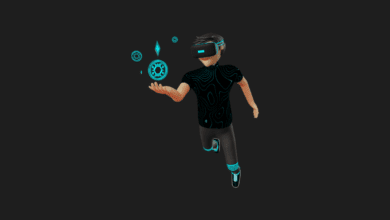Exploring the Potential Risks and Disadvantages of the Metaverse

The concept of the metaverse, recently emerging in our lives, sparks excitement due to the anticipated innovations and possibilities it may offer. Beyond being a significant advantage for companies developing applications, the metaverse is expected to generate digital solutions for various applications, with the potential to strengthen blockchain and enhance opportunities for blockchain-based cryptocurrencies. It can also simplify the development and implementation of NFTs (non-fungible tokens) as decentralized or distributed databases used for storing transaction records.
Discussing the advantages of this evolving virtual universe involves highlighting its potential to provide an innovative and effective communication environment for education and business life, opportunities for social events, and virtual travel, along with marketing resources for companies—besides blockchain applications. However, it is crucial not to overlook the potential disadvantages behind these opportunities, as they may have serious consequences.
One prominent challenge is the requirement for advanced technological products in the metaverse. The necessity for hardware devices such as VR sets and Haptic gloves may create inequality in accessing the metaverse, as not everyone can afford or utilize such equipment.
This dependency on specific hardware may limit access for various segments of the population. Additionally, a fast internet connection is an essential requirement for the metaverse.
Unfortunately, a significant portion of the global population lacks the necessary internet infrastructure for high-speed internet access.
This digital divide implies that individuals entering the metaverse without sufficient internet infrastructure may encounter connectivity issues such as delays and interruptions, hindering their ability to experience a seamless metaverse environment.
44 PERCENT MORE

Beyond the previously mentioned requirements, the metaverse may potentially encounter numerous challenges related to privacy and security. It is a fair and natural expectation for individuals to navigate safely in the digital environment and safeguard their sensitive information.
However, the myriad possibilities presented by the metaverse make it challenging for users to ensure safe navigation and keep their crucial information confidential. Consequently, as the metaverse becomes more integrated into people’s lives, the likelihood of various security issues arising, such as malicious hackers capturing sensitive information of individuals circulating in the metaverse, becomes a concern.
Apart from security risks, the metaverse is also speculated to bring about significant changes in our social lives. A potential consequence is the risk of addiction to the virtual world, leading individuals to withdraw from real-world events and responsibilities.
This addiction could potentially impact the upbringing of future generations. According to a study conducted by HTC with a Chinese university on VR addiction, the propensity for addiction to VR-based games is reportedly 44 percent higher than that for computer-based games. Additionally, the metaverse has the potential to influence how people perceive their real relationships and interactions, posing social challenges.
In conclusion, every advantage comes with its set of disadvantages. The metaverse, evolving as a concept within this paradigm, will depend on efforts from both developers and users to minimize its drawbacks. With collaborative efforts, if the necessary measures are taken to mitigate risks, the metaverse has the potential to become a virtual universe that enhances our lives and introduces new possibilities.











